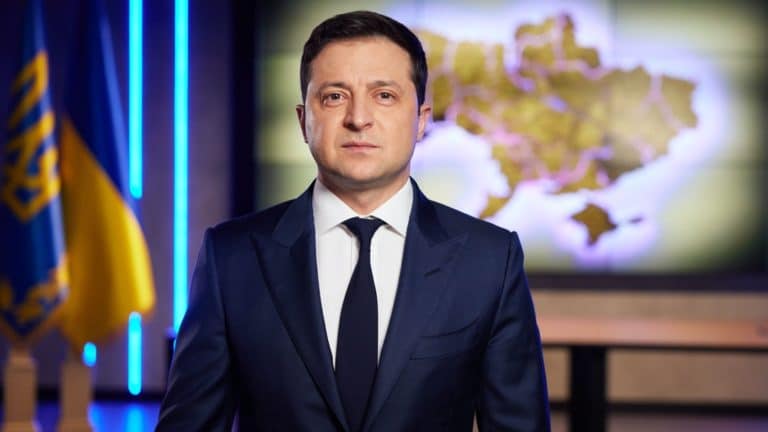
Moscow’s invasion of Ukraine is now months long and Russian President Vladimir Putin and his government continue to invoke a “fight against Nazis” as justification for the war.
Russian President Vladimir Putin announced that Russia is undertaking a "special military operation" in Ukraine saying his goal is to demilitarize and denazify the country but not occupy it.
— Paul Sonne (@PaulSonne) February 24, 2022
On May 2nd, in an interview on the Ukrainian president, the Russian Foreign Minister said: “Zelensky is a Jew? Hitler also had Jewish origins. The greatest antisemites are precisely the Jews.”
Sergey Lavrov, the Russian foreign minister, went on to say that “the fact that [Ukrainian President Volodymyr Zelensky] is a Jew does not negate the Nazi elements in his country.”
“I believe that Adolf Hitler also had Jewish blood,” Lavrov added.
Putin announced the “special military operation” in Ukraine back in February, which was preemptively met with a sharp response from Ukraine’s Jewish President, Volodymyr Zelensky.
I appreciate Russia’s declared goal of “de-Nazifying” Ukraine with its *checks notes* Jewish president.
— Avi Mayer (@AviMayer) February 24, 2022
In his address Putin said: “It’s goal is to protect people who have been subjected to bullying and genocide … for the last eight years. And for this we will strive for the demilitarization and denazification of Ukraine.”
Putin has been making Nazi claims against Ukraine since at least 2014.
Putin here is invoking "fighting antisemitism" in Ukraine as a reason for the hostilities. pic.twitter.com/bXFL9TVGgV
— Johnny Kunza (@johnkunza) February 4, 2022
Russian media has repeatedly sought to portray Ukraine as being aligned with Nazism. A claim that the rest of the world categorically rejects.
Live on Al Jazeera right now, a Russian ambassador repeats at length that they are fighting "Nazi ideology" in Ukraine. Al Jazeera presenter pushes back strongly "with all due respect nobody believes that sir." pic.twitter.com/tYltuGPQST
— Johnny Kunza (@johnkunza) February 24, 2022
‘How can a Jew be a Nazi?’
Hours before Putin’s address announcing the invasion, Ukraine’s President Volodymyr Zelensky, who is Jewish, delivered his own address, pleading for peace and pushing back against Putin’s repeated accusations that Ukraine is aligned with Nazism.
The President of Ukraine is Jewish. The Prime Minister who served until 2019 was Jewish. Remember this as Putin claims he’s invading to “denazify” Ukraine. https://t.co/fLWQGByPQr
— Eric Columbus (@EricColumbus) February 24, 2022
“The Ukraine on your news and Ukraine in real life are two completely different countries — and the main difference between them is: Ours is real. You are told we are Nazis. But could a people who lost more than 8 million lives in the battle against Nazism support Nazism?” Zelensky asked, addressing the charges directly in Russian.
The Ukranian president did not explicitly note his Judaism in the address, but mentioned his personal connection to the Holocaust.
“How can I be a Nazi? Explain it to my grandfather, who went through the entire war in the infantry of the Soviet army, and died a colonel in an independent Ukraine.”
Three of Zelensky’s grandfather’s brothers were killed in the Holocaust and Zelensky has been outspoken about his Jewish identity.
Between May and August 2019, Ukraine was the only country other than Israel to have both a Jewish head of government – Prime Minister Volodymyr Groysman – and a Jewish head of state, President Zelensky.
Reversing the roles
Ukraine was quick to throw the ‘Nazi’ label back at Putin.
Ukraine's President and PM are Jewish. It's not a Nazi state. The Master of the Kremlin is a bit of a fascist, though. https://t.co/S7OdDDWWmg
— John Sweeney (@johnsweeneyroar) February 24, 2022
Ukraine’s official Twitter account shared a caricature of Putin being groomed by Nazi dictator Adolf Hitler, apparently implying the Russian leader had similar dreams of domination.
— Ukraine / Україна (@Ukraine) February 24, 2022
In a tweet, Zelensky accused Russia of acting like Nazi Germany.
Russia treacherously attacked our state in the morning, as Nazi Germany did in #2WW years. As of today, our countries are on different sides of world history. 🇷🇺 has embarked on a path of evil, but 🇺🇦 is defending itself & won't give up its freedom no matter what Moscow thinks.
— Володимир Зеленський (@ZelenskyyUa) February 24, 2022
“Russia treacherously attacked our state in the morning, as Nazi Germany did in #2WW years,” he wrote. “As of today, our countries are on different sides of world history. [Russia] has embarked on a path of evil, but [Ukraine] is defending itself & won’t give up its freedom no matter what Moscow thinks.”
What is the state of antisemitism in Ukraine?
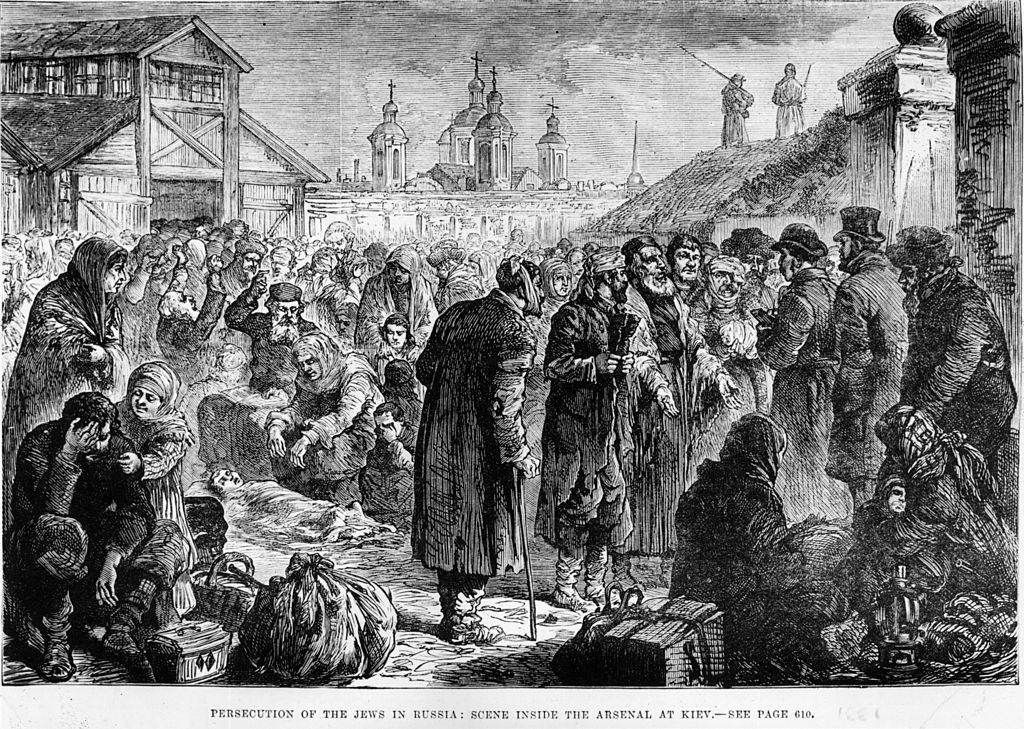
Jews in Ukraine generally do not face acts of violence or public condemnations of Israel, according to the American Jewish Committee’s report.
In 2018, the Pew Research Center found Ukraine to be the most accepting of Jews among all Central and Eastern European countries.
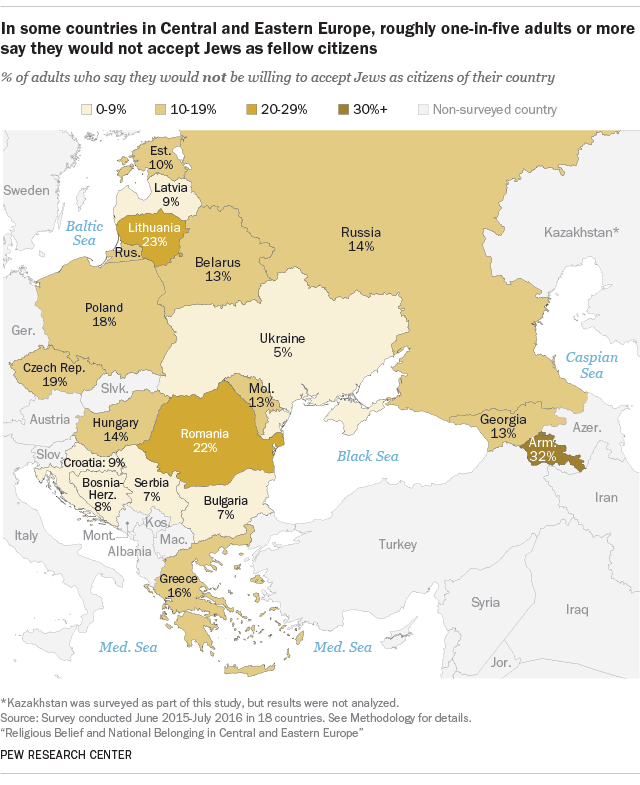
Last week, Ukraine’s parliament passed a law criminalizing antisemitism as defined by the International Holocaust Remembrance Alliance (IHRA).
IHRA defines antisemitism, in part, as “a certain perception of Jews, which may be expressed as hatred toward Jews,” and “denying the Jewish people their right to self-determination” by “claiming that the existence of a State of Israel is a racist endeavor.”
This definition has been adopted by 35 countries, at least a dozen American states, the European Union Parliament and more than 1,000 organizations and universities worldwide. It was formally endorsed by the government of Israel in 2017.
In Ukraine, the offense of antisemitism is now punishable by a fine or a prison sentence of up to five years.
Despite this, antisemitism is not a thing of the past in Ukraine.
The country has been historically reluctant to reckon with its role in the Holocaust, during which more than one million Jews were killed by the Nazis and local Ukrainian collaborators.
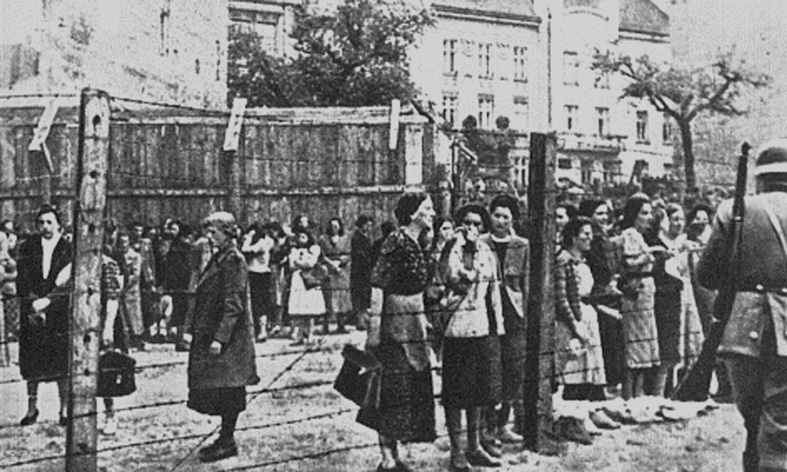
The Jews of Ukraine account for a great proportion of the Soviet victims of the Holocaust with the worst massacre taking place at Babyn Yar outside Kyiv. During 1941–43 more than 100,000 Jews were killed in Babyn Yar.
For some in Ukraine’s Jewish community, the current events have stirred up memories of past horrors, reported the New York Times.
“Though antisemitic violence is relatively rare in Odessa, some Jews are fearful that it could be unleashed by the chaos of war,” the article explained.
Ukraine has a growing neo-Nazi problem
“Antisemitism in Ukraine exists in its old ‘traditional’ and cultural form: the notion that Jews control all money, the media and government, they are greedy, murdered Jesus, and ‘suck our blood,’” said Samuel Kliger, the American Jewish Committee’s Director of Russian and Eurasian Affairs.
Alongside that apathy, Kilger said, some Ukrainian lawmakers have pushed to celebrate certain Nazi collaborators as war heroes, trumpeting their anti-Communist battles while ignoring their complicity in Holocaust crimes.
The Azov Movement
“Ukraine really does have a far-right problem, and it’s not a fiction of Kremlin propaganda. And it’s well past time to talk about it,” explained journalist and expert on the Ukrainian far right, Michael Colborne.
The most known neo-Nazi group on Ukraine’s far right is the Azov movement. The movement grew out of the Azov Regiment (originally a Battalion), formed in the chaos of war in early 2014.
It was formed by a “ragtag group of far-right thugs, football hooligans and international hangers-on, including dozens of Russian citizens,” said Colborne, who wrote a book on the movement.
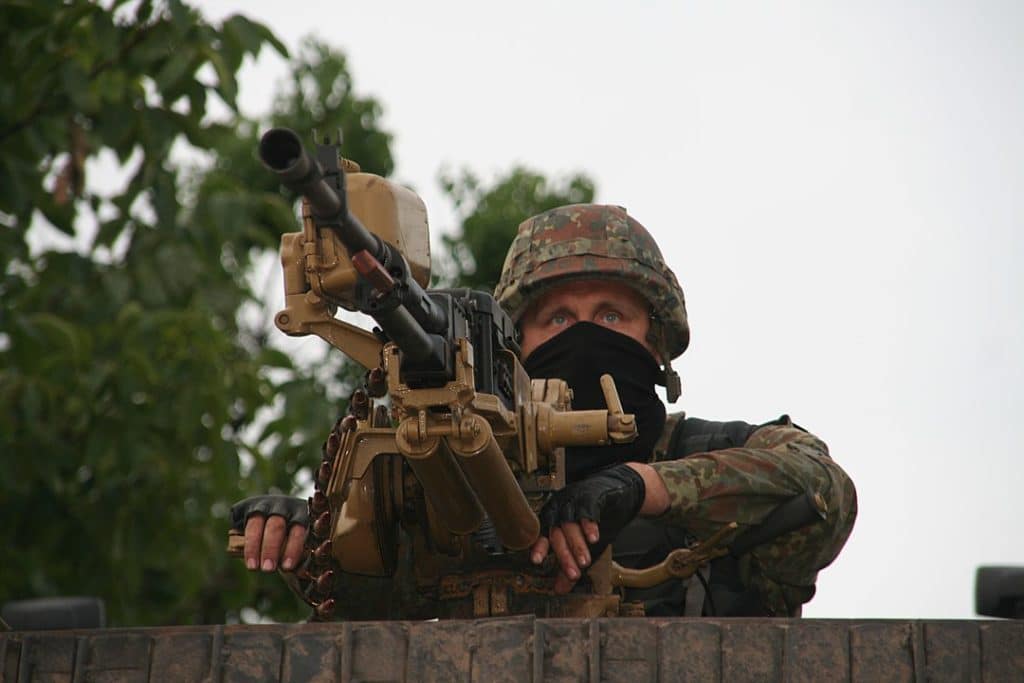
At that point, Azov became an official unit of Ukraine’s National Guard. Now, the movement’s most public face is the National Corps political party, which won barely 2% of the vote in a coalition with other far-right parties in parliamentary elections in 2019.
Estimates of membership are around 10,000 members, according to Corborne.
“It’s more a brand than a party, a polished PR-focused outfit that isn’t above coyly referencing the so-called “14 words”, a white supremacist slogan,” he wrote. “The Azov movement tries to be a one-stop shop for all things far right. There’s also a bevy of loosely affiliated but more extreme subgroups under its umbrella as well, including open neo-Nazis who praise and promote violence.”
The Azov Movement is frequently cited by people who want to “give Putin a free pass to do what he wants in Ukraine,” Corborne added. “It doesn’t in any way justify the actions of the Russian president.”
Bottom Line
Let’s look beyond the flashy headlines.
Ukraine’s Jewish population ranges from 49,000 to 400,000 people. Some of Judaism’s most distinctive ideologies and traditions have their roots in the area. Their current president is Jewish, and they have had a Jewish prime minister too.
In the same breath, the community is no stranger to both historical and current persecution. Antisemitism continues to spike across the spectrum, all over the world, including in both Russia and Ukraine.
There is a world of difference between real concerns about the growing far-right and hyperbolic claims that Ukraine is aligned with Nazism.
The far-right is a problem in Ukraine, but Ukraine is far from a Nazi state.
Originally Published Feb 24, 2022 11:01AM EST
